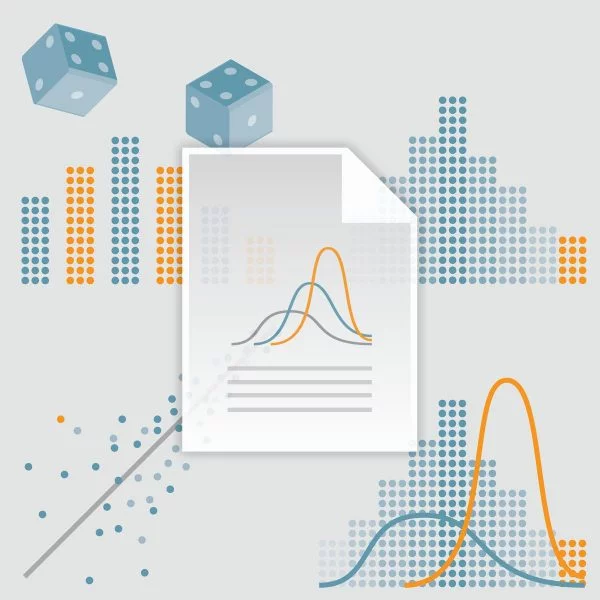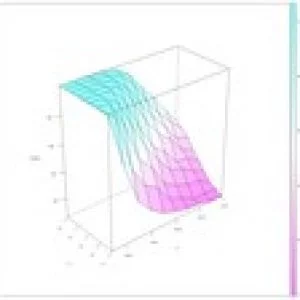
The capstone project will be an analysis using R that answers a specific scientific/business question provided by the course team. A large and complex dataset will be provided to learners and the analysis will require the application of a variety of methods and techniques introduced in the previous courses, including exploratory data analysis through data visualization and numerical summaries, statistical inference, and modeling as well as interpretations of these results in the context of the data and the research question. The analysis will implement both frequentist and Bayesian techniques and discuss in context of the data how these two approaches are similar and different, and what these differences mean for conclusions that can be drawn from the data. A sampling of the final projects will be featured on the Duke Statistical Science department website. Note: Only learners who have passed the four previous courses in the specialization are eligible to take the Capstone.
Instructor Details
Courses : 1
Specification: Statistics with R Capstone
|
28 reviews for Statistics with R Capstone
Add a review Cancel reply
This site uses Akismet to reduce spam. Learn how your comment data is processed.

| Price | Free |
|---|---|
| Provider | |
| Duration | 9 hours |
| Year | 2017 |
| Language | English |
| Certificate | Yes |
| Quizzes | No |

FREE






Jose M C –
Great activity!!
Jose L E N –
I think this is a very advisable course as a whole, The capstone offers a good occasion to put into practice what has been learned during the four previous courses and also works as a sort of review.
Gonzalo C S –
We spent several months waiting for this capstone to appear. The instructors dissapeared and nobody knew if this one was going finally to happen or what.
andy d –
The Capstone project really helped tie the program together
Dai Q –
Thank you very much for teaching me all the statistics courses in the specialization. Although it is an online study, I think I benefit a lot from the course contents, quizzes and problem sets and the training from final projects one by one. Also, I appreciate a lot the feedback from other students in the courses, which gives me more confidence on my study. As a matter of fact, I know I still have a lot of room to improve on my final project, such as consistency of EDA with the later part of my project, assessment on residual plots, real understanding on the trade off between model interpretation and prediction accuracy, etc., which I will improve in my future study and analysis. No matter where and what I will study in the future, I always bring the statistics knowledge and R skills that I learned from my first specialization from professors at Duke University. Thank you.
Minas–Marios V –
Very interesting project, a great real world application example. Highly recommended to anyone that finishes the previous classes.
Erik F –
This section guides you through performing a complete analysis. Some of the grading criteria are inconsistent with the tasks stated in the project. However, in my experience giving the kind of report that you’d generate from R markdown to a non technical, non statistically minded stakeholder will result in bewilderment. While Rmd is a good format for documenting your approach and creating a reproducible data analysis, the report presented to stakeholders should take a much different form. In writing an Rmd, you are necessarily constrained by the need to write code in a particular order that order may not be the most beneficial one to present. Furthermore, having long summary output of various models and other such code is generally not helpful to non technical stakeholders. I understand that not using Rmd would make grading more difficult, so I’m ok with Rmd being used here. But I think that it would be good to explain this all to students.
Albert C G –
Great
Adam C –
Great course, learned a lot and got me started on another project that I’ve turned into a really nice portfolio item. I feel much more comfortable with R and statistics principles.
Marina Z –
Great! Enjoyed it!
Tom M –
Excellent
Thomas J H –
This was a highly challenging sequence of four courses and capstone, but worth the considerable investment in time and effort. Overall, with just a few glitches here and there, the specialization was superbly taught and well designed. I thank Mine and the rest of the Stats team at Duke for offering it. I would also like to see Bayesian Stats made perhaps into two courses. Or even a follow up Bayesian course perhaps not required for the specialization. Professor M. Clyde is one of the world’s leading experts on Bayes, and the creator of the BAS package. All respect! I would like to have more of her teaching, but at a slightly less steeper learning curve. To my fellow students and the Duke team, thanks again.
Vinh H –
Very good !
Ryan W –
Great lead up to a final capstone project, in which you test a model for overfitting and validate on out of sample data.
Jian W T –
The capstone project is an excellent way to utilise the skills and knowledge learnt from the previous 4 courses in the specialisation. I learnt a lot about conducting a data science project from start to finish and it allows for ample time to experiment with different approaches to accomplish the project goals. This capstone project, and the 5 course specialisation, is highly recommended.
Bruce H –
This project will reward you for the time you invest. It’s a good simulation of a real world exercise in using concepts from the specialization. The reason I took away one star is because the grading rubrics at every step are relatively superficial, sometimes absurdly superficial.
Roland –
Excellent course
Arjun B –
Strong Capstone Project
Jim F –
Loved this course
Matthew L –
Sometimes capstone courses are focused just on a final project. In this case, the capstone also includes quizzes which force you to review material that will be helpful in doing the final project. Overall, I would say that I felt a little behind compared to my peers in this specialization, since I started from zero; but on the other hand, I was still able to successfully complete it, so with a lot of hard work it is possible.
PAUL M –
V
Janio A M –
I will recommend to give the information about the projects even if the proect starts in September 10th so we could advance while enrollment opens up.
Chin J L –
A very useful and practical course. The learner had an opportunity to practice the skills he/she learned in the previous course and use it in a real life situation.
Louis S –
This Capstone has giving me a good understanding of statistic’s, and the role this discipline plays in the real world. A special thanks to Mine Cetinkaya Rundel I feel that she does an amazing job communicating the concepts.
Joanna L –
Great, comprehensive way to utilise all of skills obtained during this specialization!
Andrea P –
Very interesting project oriented and practical case! Well done!!
ninad p –
This was my first course, and found it very useful to learn new skills.
Natalie R –
The course taught me a lot, but it felt like a lot of self teaching. The course materials, especially for the final Bayesian unit, were full of errors. It’s great for keeping you on a course of study, but it’s essentially self taught. The assignments can be very confusing. For instance, on the final peer graded assignment, there was a question in the scoring matrix that wasn’t asked in the assignment itself, so almost no one did it and couldn’t have gotten points for it. The peer grading in general is a bit of a joke and because of the way the scoring matrix is set up, I was essentially forced to grade excellent projects about the same as very mediocre or bad ones, just because the scoring is mostly a checklist of required components. Lastly, I was a bit disappointed with the final certificate. It is the exact same as the certificates that you receive for each of the sub courses within the concentration. To an outsider (employer, colleague, etc.), it would be entirely unclear that you finished a whole, months long course as opposed to just one of the courses. I may put it up on my LinkedIn, but I almost feel like it would reflect poorly on me professionally because it looks like a silly online class certificate, so I may just take the knowledge I gained and leave it at that. Glad I slogged through, though!